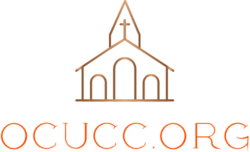Understanding UCC Theology: Core Beliefs and Practices
The United Church of Christ (UCC) welcomes individuals from diverse backgrounds and theological perspectives. UCC theology centers on a core set of beliefs and practices that emphasize inclusivity, social justice, and a personal relationship with God. This blog post delves into the foundational tenets of the UCC, exploring its core beliefs, distinctive practices, and how these principles translate into action in the lives of its members.

Core Beliefs: A Foundation of Faith
The UCC affirms several core beliefs that shape its theological identity:
- God’s Trinitarian Nature: The UCC believes in God as a Trinity: Father, Son (Jesus Christ), and Holy Spirit. This belief emphasizes God’s relational nature and love for humanity.
In consequence, the concept of the Trinity highlights the interconnectedness of God and the importance of relationship in the Christian faith.
- Salvation by Grace: The UCC emphasizes salvation as a gift from God received through faith, not through good works alone. This belief underscores God’s unconditional love and forgiveness.
Furthermore, the UCC rejects legalism, the idea that salvation is earned through strict adherence to religious laws.
- The Authority of Scripture: The UCC affirms the Bible as a central source of God’s revelation. However, it encourages critical interpretation of scripture in conversation with contemporary society.
In essence, the UCC fosters a balance between respecting the Bible’s authority and acknowledging the need for ongoing theological reflection.
- The Priesthood of All Believers: The UCC rejects hierarchical structures and emphasizes the equality of all believers before God. Every member is considered a priest, with the ability to directly access God through prayer and participate actively in the church’s ministry.
Consequently, the UCC promotes a participatory approach to worship and encourages all members to utilize their gifts and talents in service to others.
Distinctive Practices: Putting Faith into Action
The UCC embodies its core beliefs through several distinctive practices:
- Open Communion: The UCC welcomes all baptized Christians to participate in the Lord’s Supper (communion), regardless of denominational affiliation. This practice reflects the UCC’s commitment to inclusivity and Christian unity.
In addition, open communion highlights the belief that the Eucharist is a shared meal of fellowship, not a test of doctrinal purity.
- Congregational Polity: Local congregations within the UCC have significant autonomy in decision-making. This decentralized structure empowers individual churches to tailor their ministries to the needs of their communities.
Furthermore, congregational polity fosters lay leadership and encourages democratic participation within the UCC.
- Social Justice and Advocacy: The UCC has a long history of social justice activism. The denomination actively advocates for issues such as peacemaking, racial equality, and LGBTQ+ rights.
In consequence, the UCC encourages its members to live out their faith through service to others and a commitment to social justice causes.
- Commitment to Ecumenism: The UCC actively seeks dialogue and collaboration with other Christian denominations. This commitment to ecumenism reflects the UCC’s belief in Christian unity and its desire to work together for the common good.
Moreover, the UCC participates in various interfaith initiatives, fostering understanding and cooperation between different religious traditions.
Conclusion
UCC theology is not a static set of doctrines but a living tradition that adapts and evolves in conversation with contemporary issues. The core beliefs and practices outlined above provide a foundation for a vibrant and inclusive faith community. The UCC empowers its members to nurture their personal relationship with God, engage in meaningful worship, and serve as agents of love and justice in the world.



